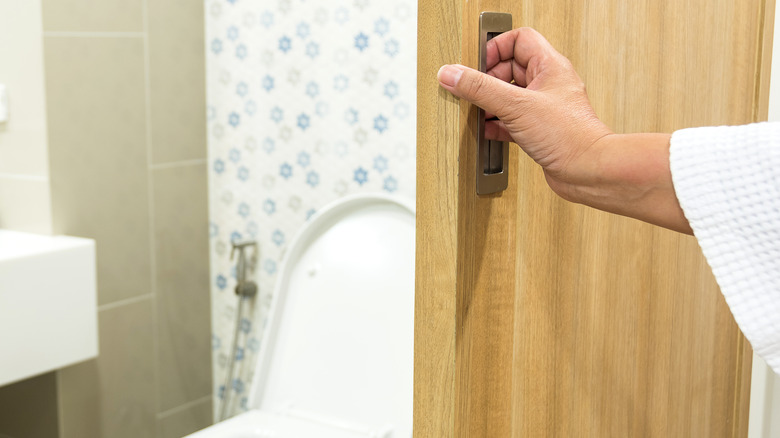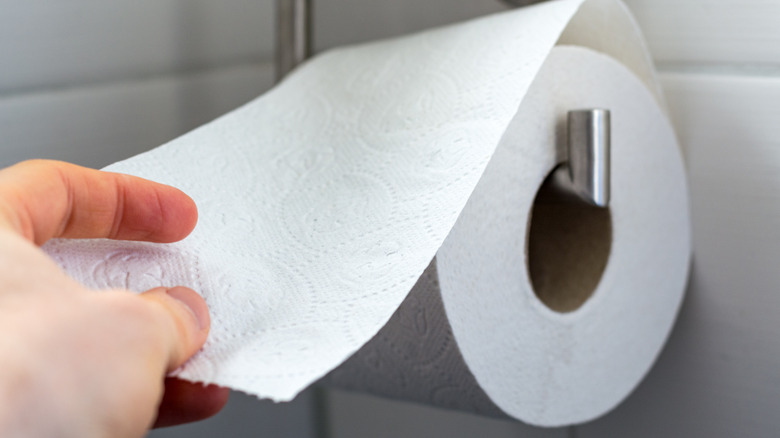What It Means When Your Poop Smells Like Metal
Normal, healthy poops are usually a shade of brown and give off a fairly unappealing odor. While our food choices may occasionally modify the scent of stool, the smell is generally pretty predictable and consistent — or at least, it should be.
Sometimes, changes in the smell of your poop are more distinct. Certain health conditions or medications may cause stool to smell fishy, vinegary, or similar to the scent of household cleaning products, reports My Crohns and Colitis Team. Specific food items may also cause a noticeable change in the smell of your poop. For example, meat, dairy, and alcohol can have us producing rotten egg-scented poops due to their high sulfur content. Depending on the cause, these changes may be temporary, and therefore, no reason for concern. If your poop begins to take on a metallic smell, however, the causes can vary, and some may be more serious than others.
Metal-scented poop may be a symptom of hemorrhoids, anal fissures, or diverticulitis
The source of poop's metallic smell is likely iron (via My Crohns and Colitis Team). While excess consumption of iron — such as through supplementation — may be the cause, iron is also naturally found in our blood. Therefore, if you notice blood in your stool after a bowel movement, it likely means that it's the scent of the iron your nose is picking up on. This bleeding may be the result of hemorrhoids, or bulging veins that develop on the inside of the rectum or around the anus. Hemorrhoids are not unusual, with symptoms affecting approximately 1 in every 20 people in the U.S., reports the Cleveland Clinic. Rectal bleeding is one of the more common symptoms.
Alternatively, metal-scented stool may be caused by bleeding from anal fissures, or minor tears in the anal tissue, explains the Mayo Clinic. Pushing too hard while going number two can produce anal fissures, and you may subsequently notice blood in the toilet or on used toilet paper. In more serious cases, waste that smells like metal could be indicative of a health condition known as diverticulitis, characterized by the development of inflamed or infected pockets in one's intestines.
Treatment methods and when to speak to your doctor
While complications can occasionally arise from the development of hemorrhoids and anal fissures, both can often be treated at home. For hemorrhoids, staying adequately hydrated, eating more fiber, soaking in warm bath water, and using NSAIDs or over-the-counter (OTC) topical treatments can help provide relief (via Cleveland Clinic). At-home treatment of anal fissures involves much of the same (per Mayo Clinic).
In cases of diverticulitis, a person may experience additional symptoms, including constipation, diarrhea, nausea, fever, or varying degrees of pain on one side or the other of the lower abdomen (via WebMD). While cases can range in severity, it's important to seek medical treatment if you notice any potential signs of diverticulitis. Without treatment, the condition may cause scarring, abscesses, perforations, severe bleeding, and more.
In the event that you observe blood in your stool and that stool has taken on a metallic odor, talk to your physician, especially if you notice additional symptoms including fever, pain, chills, cramps, unexplained weight loss, or any other unusual symptoms.



